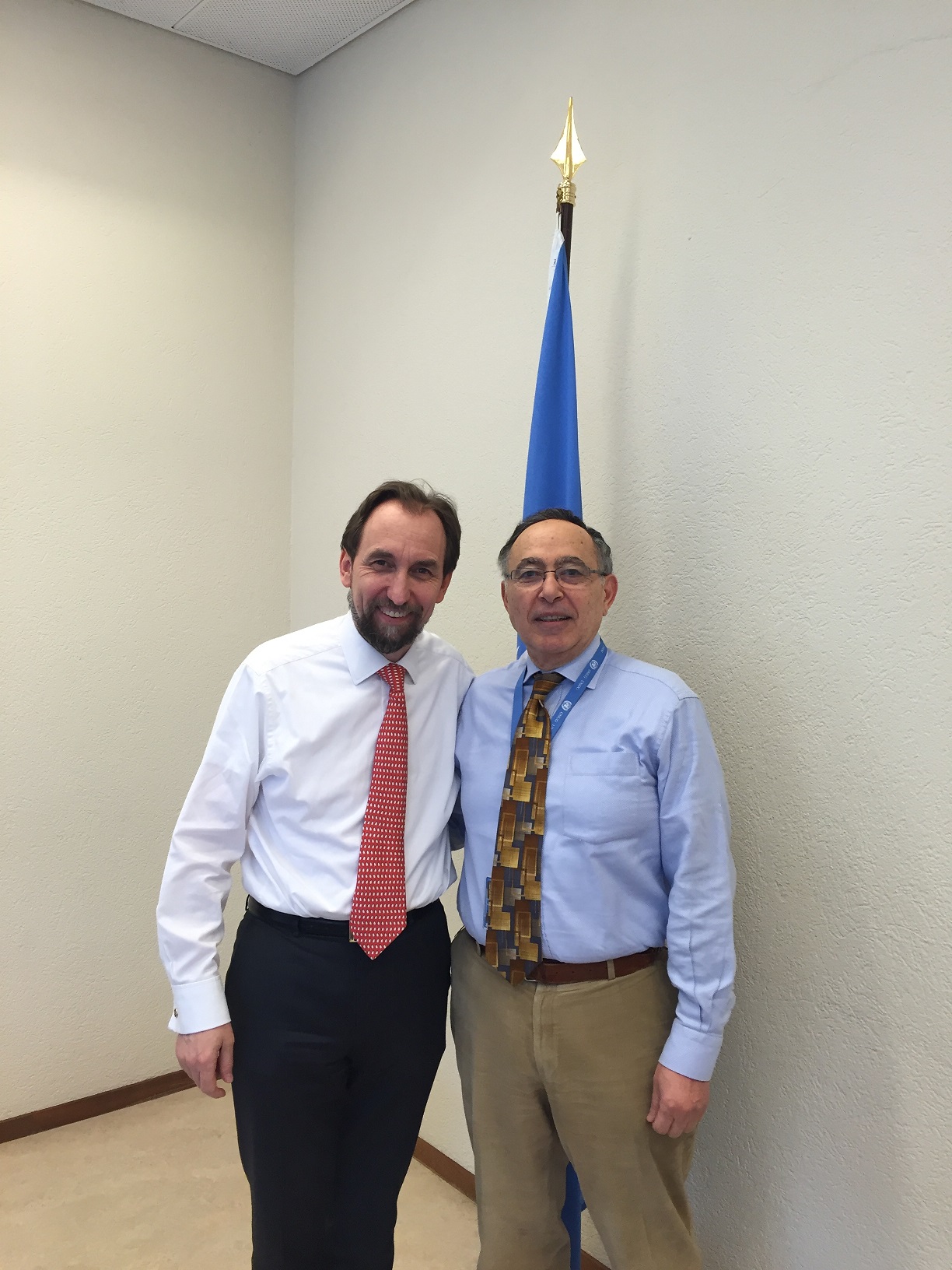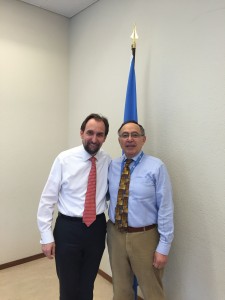On Wednesday September 13th, the director of the Cairo Institute for Human Rights Studies (CIHRS) Bahey eldin Hassan met with the United Nations High Commissioner for Human Rights Zeid Ra’ad at the High Commissioner’s office in Geneva. Hassan expressed CIHRS’ appreciation, as well as that of independent human rights voices across the Arab region, to the principled position adopted by the High Commissioner in addressing human rights issues globally and in the Arab region.
Hassan called upon Arab governments to cooperate with the High Commissioner in supporting human rights in the regions most afflicted by social, political, and cultural repression, as well as terrorism and violent extremism, armed conflicts and civil wars, and humanitarian catastrophes. Hassan denounced the Egyptian representative to the UN Amr Ramadan’s disparagement of the High Commissioner, in response to the latter’s criticism of the Egyptian government’s shameful human rights record and its lack of respect towards the Egyptian Constitution and its international obligations.
Hassan commended the High Commissioner’s position on the need to establish an independent international mechanism to investigate the humanitarian catastrophe in Yemen. Hassan recommended including an international human rights expert in the UN’s Special Envoy for Syria’s team in order to justly prioritize human rights and humanitarian concerns during the ongoing political negotiations between regional and international actors. Additionally, Hassan called attention to the latest alarming statement by Israeli Prime Minister Benjamin Netanyahu concerning Israel’s intention to remain indefinitely in the West Bank – a position undermining the efforts of the international community and the Palestinian people throughout the past 50 years, concerning the right to self-determination.
Regarding Egypt, Hassan explained that President Sisi’s government has blocked all avenues of dialogue, reform, and justice. The government has effectively nationalized visual media, restricted print media, and blocked hundreds of websites including those covering human rights issues. It has forced international human rights organizations to close their offices in Egypt, and attacked independent Egyptian rights organization through politicized judicial investigations, asset freezes, travel bans, forced disappearances (the current case of Ibrahim Metwaly is one of numerous examples), and death threats.
President Sisi has issued highly repressive legislation, including a law that experts contend will destroy civil society, as well as a law granting the President the power to appoint the head of judicial authorities, despite vehement opposition from the judiciary. When it comes to human rights, the Sisi government is neither cooperative with the office of the High Commissioner nor with other international bilateral and multilateral frameworks. This poses new challenges to human rights work in Egypt, throughout the region, and globally. The uncooperativeness of most Arab governments does not absolve the UN of its responsibility but conversely, amplifies its importance.
Share this Post


